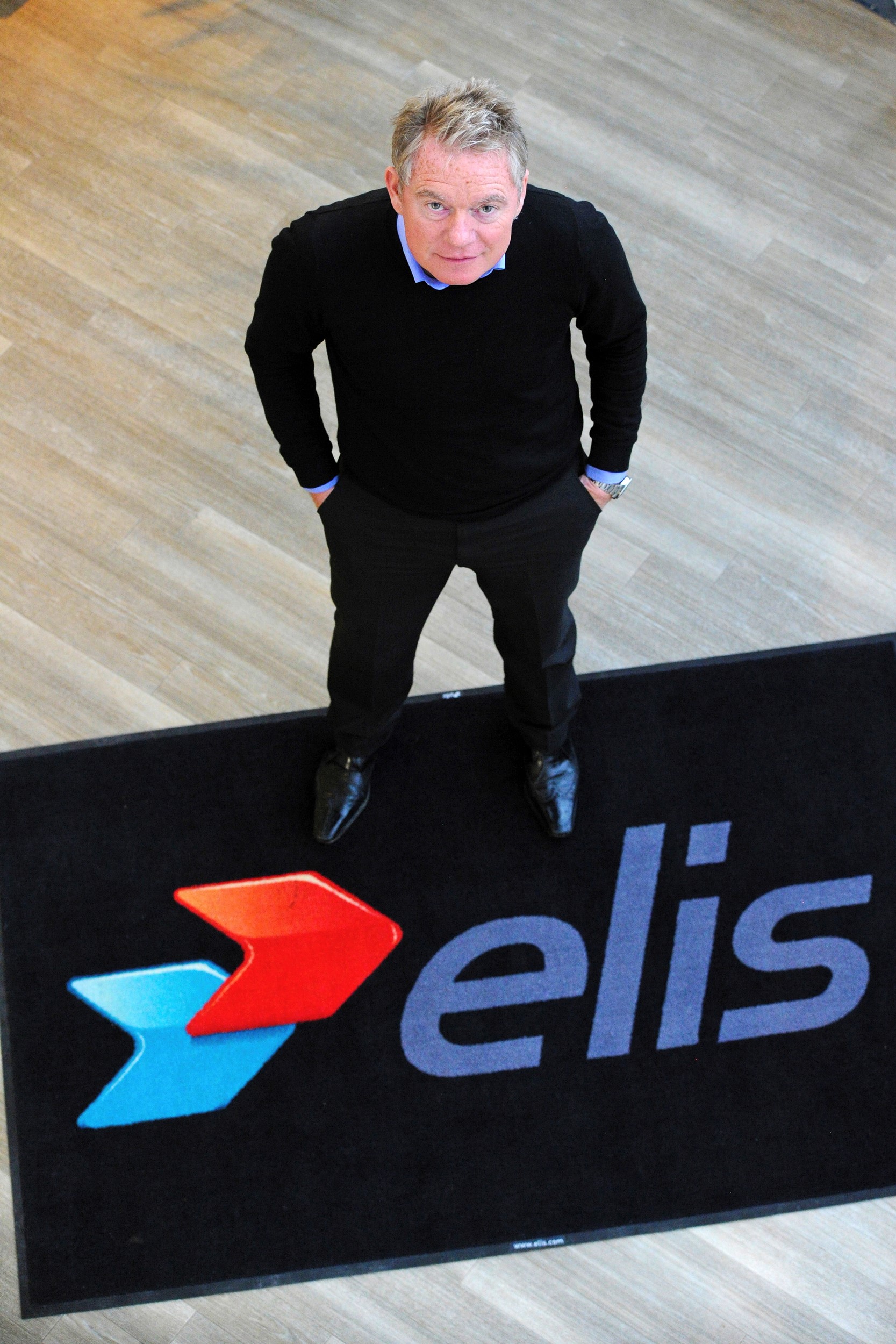The story of Peter Kelly’s appointment to his present role is a familiar tale, one that exemplifies the commonplace lack of appreciation about the value of a dedicated fleet decision-maker.
Fleet manager retires, company thinks it doesn’t need to replace them, brings in a consultant, realises it’s a full-time position and employs a fleet manager.
Kelly was that consultant; the company Elis (formerly Berendsen), the textiles and laundry services group. He was appointed group compliance and fleet manager three years ago after a 12-month stint as a consultant, bringing considerable transport and warehousing experience from jobs at Wincanton, James Irlam and Stobart Group.
The Elis fleet of just in excess of 1,000 vehicles – 256 cars, 285 vans, 465 HGVs, plus 60 vehicles on hire as ‘buffer stock’ – is managed entirely by Kelly and his two fleet administrators, Angela Rolfe and Val Knight.
“We control everything centrally so we have more control about what goes on within the business,” Kelly says.
“We treat our vans like our trucks and we treat the drivers the same as well. This is key if they move from one vehicle to another. We keep everything simple; all our procedures are the same, such as induction, checks and recording hours.”
The company is a staunch advocate of quality standards (see panel overleaf). It has Freight Transport Association Truck Excellence and Van Excellence accreditation, FORS for the depots that need it, and was a founding member of the DVSA Earned Recognition scheme.
It’s been a steady evolution to get to this point. When Kelly joined, the systems were fragmented, data was patchy and engagement with the transport/logistics managers (TMs) was sporadic. He asked himself a simple question: how do we make it easy for transport managers to get the right information?
The solution was to bring together data from multiple sources – tachographs, TomTom telematics, cameras, mileage capture via The Miles Consultancy (TMC) – to produce a monthly report on driver behaviour, featuring a league table on utilisation.
The TMs have direct access to the telematics data where they can view video footage from the cameras; they are automatically sent videos of any event above a ‘level five’ (impact) with an option to view a live feed.
Elis is looking at supplementing the data with a first notification of loss app for the trucks whereby insurers are notified about an incident at the push of button. The insurer can call the driver to make sure they are ok and whether they need the emergency services, then talk through what they need to do next. Effectively, the investigation takes place there and then at the scene of the accident.
“From a practical point of view, the fleet is more efficient now,” says Kelly. “We can see where the vehicles are being utilised, mpg has increased, saving us £475,000 in fuel, and we are doing less mileage. A big difference was linking the TMC data into TomTom so we have accurate reports on fuel usage.”
He adds: “When we interrogate the data, we work with the bottom five drivers to improve their performance.”
Since integrating the data via TomTom telematics, speeding events have fallen by 98%. Kelly puts this partly down to the in-vehicle coaching provided by the system, which alerts the drivers if they exceed the speed limit.
“We found that drivers were rushing before, taking short cuts. Now, they follow the routes and it has reduced mileage because they go from A to B,” he says. “We have a lot of temp drivers, so having the route programmed in is a big benefit.”
Kelly uses feedback from one of the drivers to illustrate the point: “He said ‘I start at the same time, do the same number of deliveries and finish at the same time. But I’m not speeding and I’m less stressed – the system works for us’.”
A turning point came with the integration of cameras with TomTom telematics. It enables Elis to contest spurious claims, which saved it £1.2 million alone last year – exactly the cost of the initial investment. Previously, it struggled to defend itself and its drivers.
“It was 80/20 in their (the third party’s) favour; now it’s 80/20 in our favour,” Kelly explains. “If there’s an incident, we see the driver point to their camera to tell the other person it’s being recorded. We get a 30-second recording after the incident which protects the driver from abuse or violence.”
Video evidence enables Elis to settle claims within a day if its driver is at fault, which saves at least 50% of the total claims cost. It has also provided its claim advisor and insurer with access, further speeding up the process.
“If they believe it’s a dishonest claim, they will write to the third party to say we may sue them. Hopefully, that will stop them making claims,” Kelly says.
The process of fitting telematics to every vehicle from 3.5 tonnes began in mid-2017. They all have 360-degree cameras, side scanning equipment for cyclists and indicator warnings. The smaller vans have front- and rear-facing cameras with the telematics.
The reports give complete visibility, by driver, vehicle, depot and region, and enable Kelly to identify where best to focus. Each report has a read receipt and he follows up to ensure managers understand, and act on, the data.
They also undergo training with FTA to check they are using the system properly. Elis has designed an audit document with yes/no responses to remove subjectivity and facilitate benchmarking and league tables between depots. Best practice documents ensure everyone runs each depot the same way.
The TMs are responsible for maintaining the service, MOT pass rates and any vehicle issues. Although Elis operates a restricted licence, company policy requires all TMs to have the Certificate of Professional Competence, with the FTA-run courses tailored for the business.
“We want qualified managers,” Kelly says. “We identify any themes from drivers’ answers to the questions to find out what they aren’t good at and make sure it’s added to the course content for the following year.”
He also holds bi-annual roadshows with the TMs to discuss O-licence performance, MOT and compliance targets, and areas for improvement. Meanwhile, monthly meetings with key suppliers focus on contracts, replacements and policy improvements.
“We always question what we do. Even if we’ve always done it that way, we ask if there is a better way. Can we streamline the process; is there more information that will help us manage our costs,” Kelly says.
“You have to push suppliers for the support. When I started, we didn’t get the information from them. Now we do.”
One area where support is falling short is on electric vehicles (EVs). Company strategy is to introduce alternative fuels, “if we can”.
And that’s the issue: currently Elis can’t, despite having an ideal fleet profile for EVs with return to base vehicles on fixed routes and controlled daily mileage in city centres.
Kelly started looking at EVs with a view to putting them into the site in Merton, London, last year. The only viable one-tonne option he found was the Iveco Daily. He approached his two funders, Arval and Ryder, to get one on demo.
“We booked one in and then a week before, they cancelled it,” he says. “We can’t get one.”
Even if he could get one, Kelly has additional concerns: “If we lease them, the funders don’t know the residual value so they depreciate the whole cost. They also have a higher upfront cost. I believe they are still a couple of years away (from being a commercial reality).”
Nevertheless, he is now in talks with Arrival, the electric truck newcomer supplying to Royal Mail, and is hopefully of securing a demonstrator later this year. And he is already preparing the fleet for future tightening of the clean air zones.
“With Ryder, we have put a clause in our lease that if the Government says we will only accept EVs in London, we take out our Euro 6 vehicles and replace with EVs,” Kelly explains.
“We have the systems in place to future-proof our fleet with the right vehicles and the right technology.”
Kelly on...
Compliance
Elis was one of the founding members of the Earned Recognition scheme, receiving its certification in April 2018.
“We went for Earned Recognition straight away, doing it in conjunction with FTA who did the audits,” Peter Kelly says.
“We had nothing to hide; we wanted the credibility on our compliancy. Since we did this, our relationship with DVSA has improved 10-fold.”
One obvious benefit is that his fleet doesn’t get stopped by DVSA at the roadside for spot checks. However, it’s really about the credibility: “We are one of the top compliant companies in the country.”
As part of Earned Recognition, Elis gained automatic accreditation to the FTA’s Truck Excellence programme. But it didn’t stop there; Van Excellence was next on the agenda.
“I wanted Van Excellence to give the company credibility and consistency across our sites,” Kelly says. “We use it in our marketing and it gives us the same reassurance of compliance that we have with our trucks.”
Elis is one of only 15 UK fleets to have both Earned Recognition and FTA Truck/Van Excellence accreditation.





















Login to comment
Comments
No comments have been made yet.